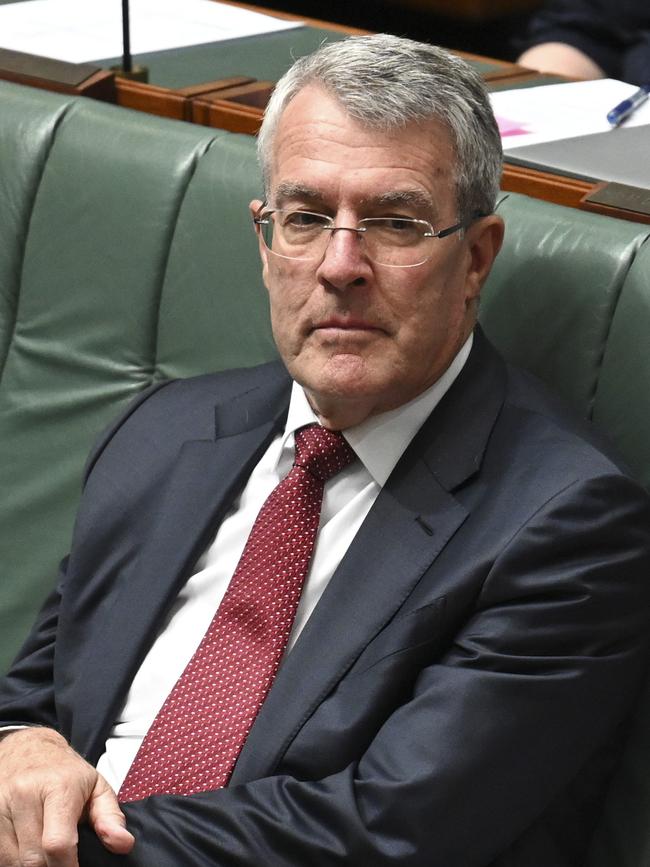Praise for ‘affirmative consent model’ leading national shift in rape legislation
A review into Australia’s rape laws has praised a national shift towards affirmative consent models that require less ‘scrutiny’ of complainants in courts, and see greater prosecutions of nuanced sexual violence cases.

A Labor-sparked review into Australia’s rape laws has praised a national shift towards affirmative consent models that require less “scrutiny” of complainants in courts, and see greater prosecutions of nuanced sexual violence cases.
The final report observed that while some critics argue affirmative consent laws shift the burden of proof on to the defendant and could see “morally innocent” people punished, ultimately the laws promote “healthy sexual relationships”, with many jurisdictions adopting them.
It also discussed “investigative difficulties” involved when prosecuting sexual assault complaints, including that there are often no witnesses or there is a lack of medical evidence of physical injuries.
The review, prepared by the Australian Institute of Criminology, was partly commissioned in response to concerns about inconsistencies in child sexual abuse and rape laws raised by Grace Tame during her tenure as Australian of the Year.
It has become the latest initiative by the Albanese government to improve outcomes for sexual assault complainants in criminal trials, after Attorney-General Mark Dreyfus earlier this year announced the Australian Law Reform Commission would conduct an analysis into “justice responses to sexual violence”.
The review found there is a “notable consistency” in consent laws across Australian jurisdictions, specifically in the adoption of laws that require consent through words or actions on a continuous basis – a model known as “communicative consent”.
The move towards communicative consent indicates a shift away from more traditional models where a failure to actively demonstrate “non-consent” could be “interpreted as implied consent”.
“A communicative model of consent better emphasises the right of all people to choose whether or not they participate in sexual activity, and the importance of communicating this, than traditional consent models that take an absence of clear non-consent as consent,” the review reads.
“It is also consistent with minimum standards of good practice internationally.”

But the review said many jurisdictions, including NSW, Victoria and the ACT have gone one step further in implementing affirmative consent laws, which require each person to actively seek the consent of other participants. It said jurisdictions are “more variably” moving in this direction.
“Affirmative consent reduces the potential for scrutiny of victim and survivor behaviours during legal proceedings, makes it easier to prosecute more nuanced forms of sexual violence and abuse (eg, where a victim consents to one sexual activity but not another), and promotes healthy sexual relationships more broadly,” the report reads, in a section detailing its overall findings.
“Victim and survivor consultations undertaken as part of this review raised concerns about the ongoing scrutiny of victim and survivor behaviour as part of criminal investigations, which impacted negatively on the justice outcomes they were able to secure.
“The arguments put forward in favour of affirmative consent have underpinned moves towards affirmative consent models internationally.”
Review authors Christopher Dowling, Siobhan Lawler, Laura Doherty and Heather Wolbers consulted various stakeholders who provided three primary arguments for affirmative consent.
“Firstly, it shifts the focus of legal proceedings to what the defendant did to obtain consent and away from the actions of victims in demonstrating non-consent,” the review reads.
“Secondly, an affirmative consent model may make it easier to identify, investigate and prosecute more nuanced forms of sexual violence and abuse not currently covered by other models of consent (eg, where a victim consents to one sexual activity but not another).
“Finally, alongside better criminalising different forms of violence and abuse, an affirmative consent model would ‘enshrine respectful, mutual and communicative sexual relationships in law’. This would better capture the significance and nuance of consent, support community understanding of what consent is (and is not), and help to address harmful myths about consent.”
The review said some advocates have argued that “stronger affirmative consent standard” would rebalance the system in favour of victims and “rather than continuing to place responsibility on women, those initiating sexual intercourse should be responsible for ensuring consent is communicated positively”.
However, it also acknowledged critics who think the affirmative model “generally shifts the burden of proof on to the defendant” and “may render sexual offences as strict or absolute liability offences depending upon whether a defence of honest or reasonable mistake was available”.
Those opposed also say the laws will “result in a situation where morally innocent people are punished to achieve what is seen as a higher good”.
The report found all 19 sexual abuse victims surveyed as part of the review “had negative experiences while navigating their matters through the criminal justice system”.
For example, one victim explained that police said they would not pursue the matter because “they had to prioritise matters where they felt they had a better chance of conviction”.
“These experiences were commonly associated with investigative difficulties relating to the collection of evidence and meeting the standard of proof required in criminal proceedings,” the report reads.
“While this standard of proof applies to all criminal matters, matters involving sexual violence and abuse present unique difficulties to police investigators and prosecutors. This includes circumstances commonly characteristic of sexual assault, such as where it is one person’s word against another, there are no witnesses (other than the complainant), and there is a lack of medical evidence of physical injuries.”






To join the conversation, please log in. Don't have an account? Register
Join the conversation, you are commenting as Logout